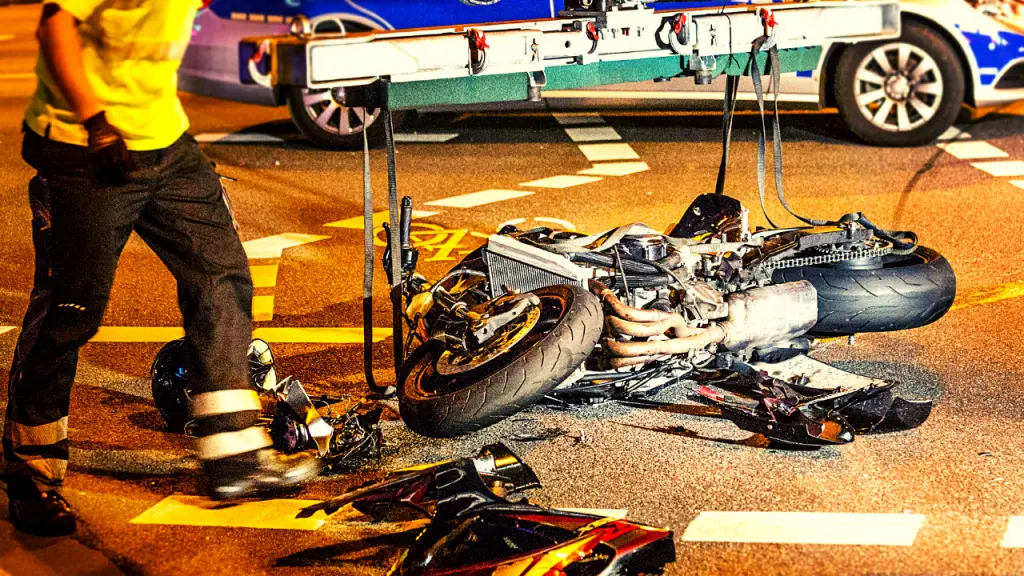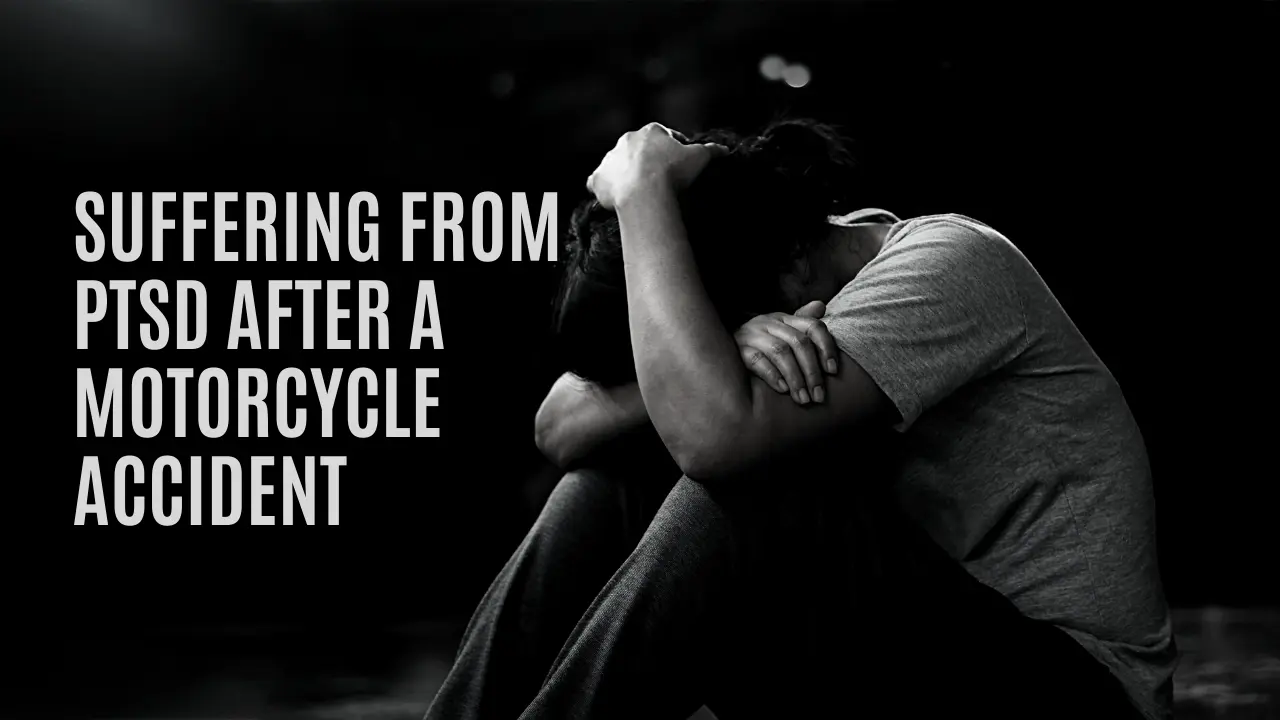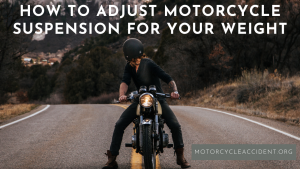The suffering experienced by motorcycle accident victims includes the abrasions and the deep cuts sustained from the crash and the mental distress and emotional pain they feel. While these may not be physically visible, they hurt just as much.
It is common to hear about post-traumatic stress disorder (PTSD) because of war or sexual abuse. But you may be wondering, can you also get PTSD from a motorcycle accident? The answer is yes; you may also have PTSD after a motorcycle accident. It may not be something talked about a lot, but PTSD from motorcycle accidents is very much real.
Some victims may be able to recover faster than others, but for some, coping with the aftermath of their accident can bring overwhelming negative feelings that can make a recovery almost impossible. And the worst thing is that the devastation can be too much for some victims to develop PTSD.
What is post-traumatic stress disorder?
The American Psychiatric Association defines post-traumatic stress disorder as “a psychiatric disorder that can occur in people who have experienced or witnessed a traumatic event such as a natural disaster, a serious accident, a terrorist act, war or combat, and rape or other violent personal assault.”
About 3.5% of the adult population experience PTSD, with one in 11 people likely to struggle with this condition in their lifetime. However, many cases still go unreported and untreated, so this percentage might not be accurate and the numbers could be higher.
Symptoms of PTSD after a motorcycle accident
People develop PTSD for different reasons, but as far as motorcycle accidents are concerned, the symptoms are divided into three categories:
Re-experiencing
- Flashbacks to the accident
- Recurring nightmares about the accident
- Persistent distressing thoughts about the accident
- Disrupted sleeping pattern
- Obsessing about the accident
Avoidance
- Having trouble recalling the events that led to the crash and the crash itself
- Difficulty concentrating
- Avoiding places, things, and events that remind of the accident
- Excessive drinking
- Showing signs of self-destructive behavior
- Emotional numbness
Hyperarousal
- Easily startled
- Always alert
- Being paranoid of danger
- Being tense all the time
- Extreme episodes of uncontrolled anger
- Emotional outbursts
- Irritability
Other PTSD symptoms motorcycle accident victims may experience include:
- Guilt
- Depression
- Anxiety
- Avoiding friends, relatives, and social activities
- Loss of interest in anything related to motorcycles
Some of these symptoms are normal following a motorcycle accident, but they usually disappear after a few days. However, suppose the symptoms persist for at least a month after the accident. In that case, you should consider seeking the advice of a medical professional to determine if you already have PTSD. Failure to do so may cause the condition to get worse unless adequately diagnosed and treated.
How is PTSD diagnosed and treated after a motorcycle accident?

To properly diagnose PTSD, a physical examination is done first to rule out any medical cause for the symptoms. Once a medical cause has been ruled out, it will be followed by a psychological evaluation to assess the symptoms and review the accident that occurred before the symptoms started showing.
As for treatment, you will have to undergo counseling and psychotherapy once diagnosed with PTSD. If necessary, doctors may also prescribe medication like antidepressants to control anxiety. This is to help you cope with your condition and emotionally recover from the traumatic accident.
Who can develop PTSD after a motorcycle accident?

While not many motorcycle accident victims suffer from trauma and develop PTSD after being involved in a crash, 10% of women and 4% of men who get into motorcycle accidents will likely experience PTSD at some point in their life.
However, motorcycle riders are not the only people who might suffer from PTSD after an accident. For instance, witnesses at the scene who saw someone get severely injured or killed are 7.3% likely to develop PTSD.
Aside from these people, who else are likely to develop PTSD after a motorcycle accident?
- The motorcycle passenger, regardless if he or she suffered injuries or not
- The passenger/s of another vehicle involved in the crash
- The driver/s of the other vehicle/s involved in the crash
- A bystander who assisted those who got hurt or killed
- First responders who treated the victims
- Family members dealing with the traumatic aftermath of their loved one’s accident
How to prove PTSD is caused by a motorcycle accident

An official diagnosis from a medical professional is critical not only for your recovery but also for your pursuit of rightful compensation. If it is proven that the accident occurred because of the recklessness and negligence of another party, you may be able to seek both economic and non-economic damages.
PTSD is included in the damages that can be claimed following a motorcycle accident. It will drastically change your life in many ways, including loss of enjoyment of life, mental anguish, and emotional distress. Moreover, PTSD will also take a financial toll on you, leading to missed wages and reduced potential for future income.
However, it is rarely quick and easy to link PTSD to a single traumatic source, which is why it is crucial to get an official diagnosis from a doctor before claiming any PTSD damages. Failure to do so will further complicate the legal process since the symptoms may not appear for months after the accident.
But once an official diagnosis has been established, your lawyer can then proceed with filing damages. In doing so, the lawyer can use your medical records and the testimony of the medical professionals taking care of your treatment to prove that the motorcycle accident did cause your PTSD.
These cases can be challenging, though, because PTSD symptoms take time to develop. Sometimes the symptoms become evident within three to six months of the motorcycle accident, but victims show signs much later in some cases. The more time that passes between the accident and the development of PTSD symptoms, the more difficult it will be to establish a causal link between the two.
Can PTSD affect personal injury claims?

Once you are officially diagnosed with PTSD, your lawyer will seek to include the costs of diagnosis and future psychological treatment and therapy. Together with the long-term impacts of PTSD and lost wages due to the inability to work following the accident, these costs can affect the settlement amount of your claim.
PTSD has been proven time and again by many medical professionals to be a natural phenomenon that can significantly change the course of a person’s life. Therefore, if it is proven that PTSD negatively affected your life following your motorcycle accident, you might be able to recover emotional distress damages for those losses in addition to the usually recoverable damages in a personal injury claim.
Damages from PTSD can be a combination of economic and non-economic losses. The former includes the costs of PTSD treatment, lost wages, and decreased earning potential. In contrast, the latter includes damages for the psychological trauma and emotional distress that you are suffering from your accident. In addition to that, you may also have damages for loss of enjoyment of life if PTSD leaves you unable to ride a motorcycle again.
If PTSD prevents you from returning to work and limits the type or amount of work you can do, the reduced future earnings can be included in the damages.
PTSD also affects your ability to function at your job efficiently, impacts your relationships with family and friends, and increases your likelihood of having suicidal tendencies.





